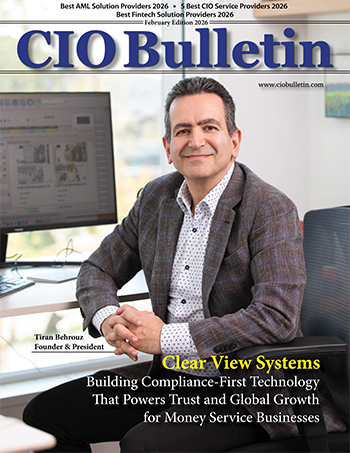Home Industry Banking and finance Are Bank Promotions Worth It? ...
Banking And Finance

CIO Bulletin
05 November, 2025
Bank promotions are everywhere—cash rewards for opening new accounts, referral bonuses for inviting friends, or interest rate boosts for keeping a high balance. These offers can seem like easy money, but not every deal delivers the value it promises. Knowing how to separate genuine opportunities from marketing gimmicks can help you make smarter financial choices and actually benefit from the right programs.
Financial institutions use several types of promotions to attract new customers or reward loyalty. The most common include:
Cash bonuses: Direct payments for opening a new account or meeting deposit requirements.
Referral bonuses: Rewards for bringing in new customers who also meet eligibility conditions.
Rate boosts or interest offers: Temporary increases in interest rates for maintaining a balance or linking multiple accounts.
Fee waivers: Often for new customers who enroll in direct deposit or maintain qualifying activity.
Account milestone rewards: Bonuses for reaching savings goals or keeping an account open for a set period.
Bundled product incentives: Additional perks or rewards for opening multiple services, like checking, savings, and a credit card.
Each has its advantages, but also its limits. Cash bonuses are immediate, while rate increases may offer longer-term gains. The key is knowing which one aligns with your goals.
The fine print often determines whether a promotion is truly worth it. Many offers require a qualifying direct deposit, a specific number of debit card transactions, or a minimum balance that must stay untouched for months. Miss one step, and the bonus can disappear.
To avoid disappointment, read the full terms before you commit. Pay special attention to time limits, deposit minimums, and whether transfers between your own accounts count toward eligibility.
Not all promotions justify the time and money required to earn them. For example, a $300 reward that requires you to keep $5,000 locked in an account for 90 days may not be worth it if that same money could earn more interest elsewhere.
One way to evaluate offers is to calculate the effective return. Divide the bonus amount by the required deposit and multiply by 100 to get the percentage yield. This helps you compare promotions on an apples-to-apples basis.
A great short-term bonus might not be as appealing if the account carries monthly fees or limited access to ATMs. Before opening anything new, consider how you plan to use the account after the promotion ends. If it fits your ongoing needs—like digital tools, budgeting support, or broad ATM access—it may be worth keeping.
If not, make sure the terms allow you to close the account without penalties after receiving your reward.
Some promotions rely on the excitement of a deadline or limited-time offer to push customers into acting quickly. Others advertise large rewards without highlighting the restrictions. Taking a step back to analyze the offer objectively helps you see past the marketing language.
When you evaluate checking account bonus offers from PNC Bank or another financial institution, focus on the net benefit. A smaller but simpler offer might actually yield more real value than a complex promotion with multiple hurdles.
While most bank promotions are legitimate, some fraudulent offers mimic real institutions to trick consumers into sharing personal information. Scammers may use look-alike websites, spoofed emails, or social media ads promising unusually high bonuses. A good rule of thumb: if the offer sounds too good to be true or requires you to provide sensitive details upfront—like your Social Security number or online banking login—proceed with caution.
Before engaging with any promotion, verify that the offer is listed directly on the bank’s official website. Avoid clicking links inside unsolicited messages, especially if they include spelling errors, unusual sender addresses, or requests to “act immediately.” Instead, navigate to the institution’s homepage yourself or call the customer service number printed on your debit card. Legitimate banks won’t ask you to send private credentials through email or text. Taking a moment to confirm authenticity can help protect your financial information and ensure you only participate in secure, reputable programs.
Promotions can be worthwhile if you:
Already plan to open a new account for practical reasons, such as relocating or changing employers.
Can easily meet the deposit and transaction requirements.
Avoid paying extra fees or losing higher interest elsewhere.
In these cases, a promotion becomes a genuine financial boost rather than just a gimmick.
Bank promotions are not inherently good or bad—they are tools designed to attract attention. The real question is whether they align with your financial habits and goals. By looking beyond the advertising and carefully comparing requirements, you can identify which offers are genuinely rewarding and which are just noise.
Approach each offer with curiosity, not urgency, and you will quickly learn how to spot the real deals hiding behind the fine print.

Insurance and capital markets







